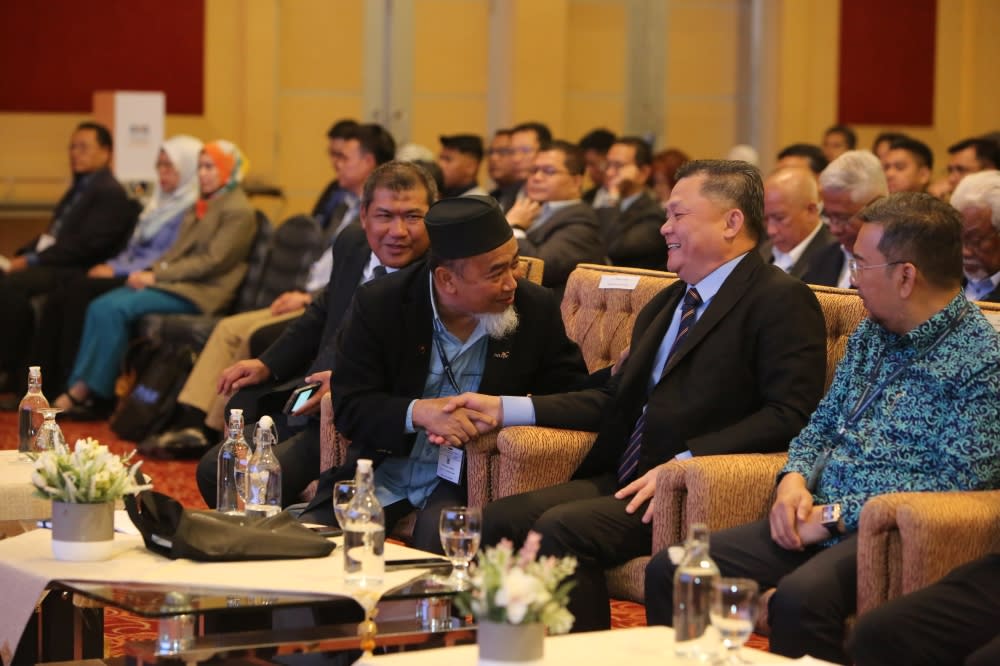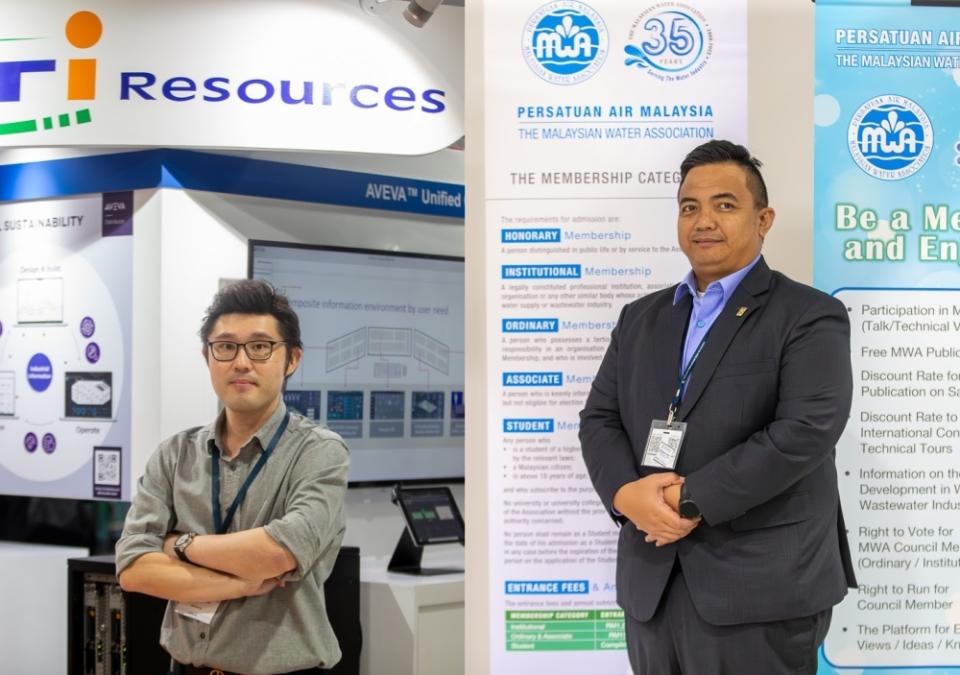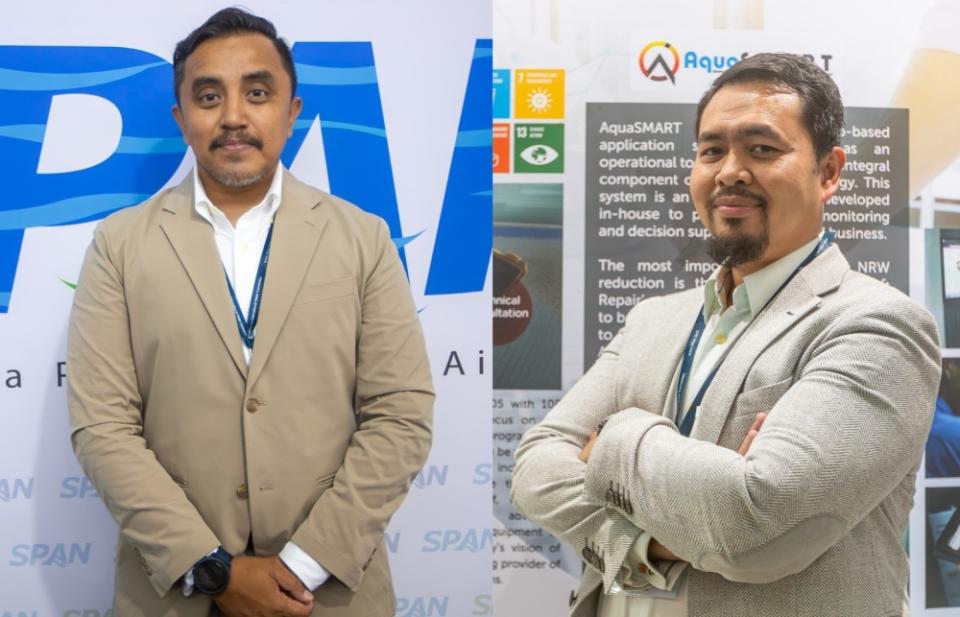Malaysia International Water Convention 2023: Sustainability is key to a water-secure future

KUALA LUMPUR, Dec 7 — The Malaysia International Water Convention 2023 (MIWC) is back after being held virtually during the pandemic, this time with the participation of over 3,500 from Malaysia, Singapore and Indonesia.
One of the most important events in the water industry, MIWC was held over four days from Dec 4-7 at the World Trade Centre Kuala Lumpur.
The third edition of MIWC, organised by Malaysian Water Association (MWA) and Protemp Group, connected and engaged delegates, raising the latest issues and developments in the water industry through an exhibition, dialogues, forums, workshops and site visits.
For the first time, the National Water Services Commission (SPAN) joined as co-organiser of the convention themed Sustainability: Transforming Vision into Action which addressed critical challenges faced by the water industry as well as exploring sustainable solutions for a water-secure future.
“In a world where the pursuit of sustainable practices has transitioned from aspiration to imperative, this convention serves as a vital platform for us to collectively translate our visions into tangible actions,” said MWA president Dr IR TS Haji Mohmad Asari Daud, in his welcome address.
“The theme underscores the essence of our shared responsibility - to not only envision a world with resilient water ecosystems but to actively engage in the transformative actions required to achieve this vision.”
Echoing the same sentiment, Natural Resources, Environment and Climate Change (NRECC) deputy minister Datuk Huang Tiong Sii said the ministry had identified key focus areas that will chart the way forward for water and sewage management through the Water Sector Transformation 2040 (WST 2040) Agenda in the Twelfth Malaysia Plan (2021-2025).
“The ministry is also committed to providing access to reliable, sufficient, clean and quality water supply at an affordable cost to all Malaysians very seriously,” he said in his opening ceremony speech.
“Apart from these measures, the Ministry is also looking at strengthening the legislative framework through the amendments of the Water Services Industry Act [Act 655].
“We will also be implementing measures to increase the financial sustainability of the water industry through tariff revisions.”
He added that as of 2022, water supply access coverage stood at 97.1 per cent in urban areas and 97.0 per cent in rural areas.
Meanwhile, sewerage services covered 85.4 per cent of the main cities.
“By the end of 2025, we aim to reach 98 per cent coverage of clean water for rural areas and 87.5 per cent for sewerage coverage.
“Malaysia is committed to achieve these targets in line with the Sustainable Development Goals (SDGs) 6, to ensure access to clean water and sanitation for all.”

Long of CTI Resources and (right) Adam of MWA. — Pictures by Raymond Manuel
MWA vice president Adam Saffian Ghazali said when we talk about sustainability, it has to do with climate change and its detrimental effects on our water supply.
“The water we extracted from the river sources was previously clear, but now because of development, the water is, to some degree, contaminated or not as good as before.
“When this happens, you need to improve its treatment, that’s why the theme of the convention is sustainability,” he said, adding that this was the same topic discussed in March at the UN World Water Congress in New York.
One of the objectives of MIWC, he said, is finding a solution for non-revenue water or NRW.
“Let’s say for your supply 100 MLD (millions of litre per day) your bill is supposed to be RM100 but because of leaks and theft, the amount billed is RM60, so the loss of RM40 is from NRW.
“It’s a big problem in Malaysia, so we have to know how to solve it and the technology needed.”
This year, to accommodate a bigger turnout, MIWC offers multiple tracks for delegates consisting of water operators, regulators, contractors, suppliers and technology providers, that cater to a wider range of topics, including sewerage, governance and sustainability.
Key players gathered share a common goal of seriously looking into what can be done to ensure continuous water supply as the country is expected to have acute water shortage in the next three to five years based on weather forecasts that predict an extended dry season.
“Most Malaysians don’t take the issue of water scarcity seriously, but actually, everybody here today is struggling to sustain with problems like river pollution, depleting water supply and very low operating cost,” said SPAN director of corporate communications and consumer affairs TS Mohd Fazil Ismail.
He added that the domestic cost of water is very low, with consumers paying less than 50 sen for every 1000 litres.
“For example, Pahang hasn’t revised their water tariffs in 30 years, how do they survive?
“Their state government has been continually pumping in funds until they say they’re out. The federal government can’t help much.
“The only way is to revise water tariffs for the public because all this while we’ve only been revising industry tariffs,” he said.
“But even if it goes up, don’t worry, it goes up only a few cents, we can’t implement high charges.”

Fazil of SPAN and (right) Subree of Ranhill. — Pictures by Raymond Manuel
Sponsors Ranhill Utilities Berhad and CTI Resources Sdn Bhd played a crucial role in making MIWC possible.
“Our current focus is on non-revenue water (NRW) because so much water loss happens in Malaysia,” said Ranhill group corporate communications manager Muhd Subree A Rahman.
“The total production is not what the customer gets.
“Let’s say, for every 100 litres of clean water, we only supply 50 litres to customers, another 50 litres are gone due to leaks and theft.”
Sales manager of CTI Resources Long See Wei said that water pollution was the main topic of discussion at the convention this year.
“Regular water operations in every state should be fine but water pollution is beyond our control,” he said, adding that as a software engineering company CTI Resources specialises in three areas of digital sustainability, asset sustainability and plant operations sustainability.
“We provide command centre solutions to water authorities to ease their decision-making process.
“A command centre is like a control room, from which the water operator can receive instant live data from the system that we provide, which enables their instant decision-making.”
Highlights from MIWC 2023 include three forums, which are the SPAN Dialogue, River Basin Management Dialogue, and Roadmap for the National Agenda on Water Sector Transformation 2040 (WST2040).



